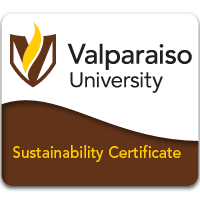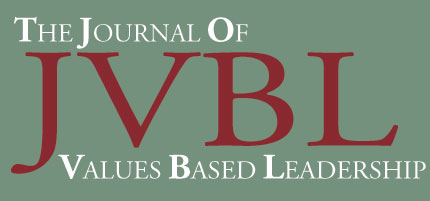- CONTENTS:
- Letter from the EditorTable of ContentsThe Amish: An Economy of ValuesCorporate Social Responsibility IS the Function of the CEO: A Portrait of the President of the Confederation of Indian IndustryWhole Foods Market: Idealism, Values, and a National Boycott Philanthropic Initiatives and the Value Proposition EquationPersonal Values and Commitment in Achieving Goals through the Cultural Organization of Work

- PERSONAL VALUES AND COMMITMENT IN ACHIEVING GOALS THROUGH THE CULTURAL ORGANIZATION OF WORK
 ASEP SURYANA, M.PD.
ASEP SURYANA, M.PD.
EDUCATION UNIVERSITY OF INDONESIA
BANGDUNG, INDONESIA
Abstract
This research focuses on developing values in the business of education, more particularly describing the appreciation of what I refer to as the quality culture in schools. The primary query pertains to the significance of personal values and commitment to achieving goals through the cultural organization of the workplace. This study uses a quantitative approach using questionnaire instruments directed at teachers in the vocational A Sumedang District of Indonesia to prove the following hypothesis:
- There is a significant influence of values-based leadership with respect to the achievement of goals through the cultural organization of the workplace. The results obtained demonstrate that values-based leadership helps realize organizational goals through attitude, discipline, quality, and labor relations. Recommendations include: (1) increasing understanding of self; (2) enhancing perspective; and (3) developing the ability to discern the differences in individuals, improve cooperation, and establish transparency in rule-making.
Background
A well-run organization is an organization capable of sharing common values and norms among its members. Values are defined as beliefs exhibited by certain behaviors which advance common interests in accordance with an institution’s sustainable needs. Understanding such values is determined by how the values are identified, communicated, and ultimately, either embraced or rejected by the organization’s constituents.
The school, as a business form unto itself, is an organization which operates in accordance with its own values systems. The educational process is designed to produce human beings who, over time, increase their knowledge base. The interjection of values in this process is fundamental. The expected results of the educational process are delineated in the National Education System statutes, particularly Article 1, Paragraph 2 of No. 20 (2003), with the purpose “... to develop learners’ potential to become human beings who are faithful, devoted to God, noble, healthy, knowledgeable, competent, creative, independent, and accountable while living as citizens in a democratic society.”
In the achievement of educational goals, there are key things to note. First, the reference values are those which are based upon religious and life tenets. Second, the growing values refer to the ongoing process of defining these fundamental values. Third, these values are either already intrinsic to the general character of the individual or must be taught by a guide or mentor. Fourth, these values, once uniformly understood and adopted, must then be applied to the ongoing acquisition of knowledge. Fifth, the formal institutional values must be exercised without exception by the organization’s management (i.e., “living by example”). Sixth, the effectiveness of the organization will then depend upon who well these values are implemented by the school administration, faculty, and staff. Without a firm commitment to the understanding and practice of values within the academic institution, schools will fail to generate the principled Indonesian life-long learner as indicated by the immoral behavior of many students and graduates who have appeared to have lost their identity, dignity, direction, and control. Additionally, these graduates will lack the knowledge, skills, and awareness required by the global marketplace. As negative consequences materialize and are compounded, what will happen to the learning process within the academic institution? The primary analysis should focus upon principled leadership. The second analysis should be geared towards the measuring the productivity and collegiality of all members who constitute the academic organization.
Problem Formulation
In examining the person’s potential loss of identity, the starting point of this research focuses upon how large a contribution personal values and a commitment to achieving common goals impact the work environment.
Research Objectives and Projected Outcomes
Research Objectives
The purpose of the research activities employed attempt to measure the contributions made by adopting and applying a common set of values.Projected Outcomes
The research results should demonstrate that: (1) a values-oriented work environment strengthens and develops the administration of the educational process; (2) policy-makers must play a greater role using their commonly-shared values in teacher recruitment; and (3) all members of the school workplace should be able to effectively inculcate these values in their students, thus increasing academic performance while improving and strengthening conviction of character.Chart 1: Values Interconnectivity Paradigm

Research Methods
The approach used in this research is both quantitative and qualitative in nature. The subjects involved in this research are professors at the Vocational High School in the Sumedang District (SMK). The primary data gathered for this research is composed of answers to questionnaires directed to SMK teachers; secondary data was obtained through interviews with the school’s principal. These research locations were all located in the Sumedang District and were selected pursuant to regional characteristics and population centers. Sampling was based upon random proportional techniques. The research sample size consisted of 196 persons.
Chart 2: Findings

Table 1: Findings (details the influence between variable quantities):
No.Variable
Category
Magnitude of Effect
Other Influence
1
Values-Based Leadership in Achieving Goals through Work Attitudes
Influenced
35.1%
64.9%
2
Values-Based Leadership in Achieving Organizational Goals through Work Discipline
Influenced
39.6%
60.4%
3
Values-Based Leadership in Achieving Organization through Quality Work Destination
Influenced
35.1%
64.9%
4
Values-Based Leadership in Achieving Organizational Goals through Patterns of Employment
Influenced
42.4%
57.6%
5
Work Attitudes, Work Discipline, and Quality of Work Patterns of Employment
Influenced
45.2%
54.8%
6
Work Attitudes and Work on the Quality of Work Discipline
Influenced
45.5%
55.5%
7
Work Attitudes toward Work Discipline
Influenced
45.5%
55.5%
Chart 3: Findings (Theoretical Model Development):
Images Value-Based Leadership Model
Conclusion
The results of this study indicate the following:
- Personal values with the commitment of the principal had an impact on the effectiveness of the achievement of organizational goals.
- Personal values and commitment of the principal influence the effectiveness of the achievement of organizational goals through work discipline.
- Personal values and commitment to the principal influence the achievement of organizational goals through the quality of work.
- Personal values and commitment to the principal influence the achievement of organizational goals through the employment relationship.
- The attitude of work derived from the value of organizational culture, self-discipline in the form of awareness, and quality of work illustrate the quality of the self-giving impact on the effectiveness of the achievement of organizational goals through the employment relationship.
- The attitude of work that illustrates the cognitive, affective and implementation in behavior and self-awareness in carrying out their duties and functions in the organization influence the development of work quality.
- The principal’s working attitude has an impact on work discipline.
- A commitment to support good personal values influence the effectiveness of the achievement of organizational goals. Values and commitment to building quality in employment will produce patterns of a dynamic and harmonious working relationship.
- Personal values with a high commitment of support will be actualized in the achievement of organizational goals.
The theoretical and empirical implications of these findings demonstrate that:
- Personal values that have emerged in leadership in the form of a balance between the actual performance (which appears in daily behavior) and the values inherent when the leader shows his behavior in daily life in society and the environment, and the task performance in the values are shown when duties and functions are performed within an organization. Detonation between the actual performance of the task performance create the impression of a negative view of the role. This means that a positive attitude at work is a picture of attitudes in their everyday lives and this should be a reference for each member. Reference connotations of values in everyday work and will build and maintain the management.
- Working attitudes described by the level of job satisfaction cannot be demonstrated as a single value exhibited by a single individual. There must be a collective justification derived from the value of organizational culture (School Culture Values).
- Within the framework of organizational effectiveness in achieving the goals of one’s re-conceptualization of values and understanding the meaning of the value of the many references of how values are formed in organizations, limit the understanding of the values of good and bad in the organization An understanding of how ethical values are implemented in situations of organizational life requires the understanding of how one should behave in the organization, and the understanding of how the main actors in the development of value change the organization.
- Discipline is the highest mark of self awareness. Consciousness arises because of certain stimulation and through the continuous processing of experiences of something that should be done, and the level of self-acceptance of what has been done.
- In order to achieve a balance between disciplines with working relationships, the process of understanding between the functions in the work and functions of personal relationships must be emphasized.
Recommendations
For management in an academic institution — as well as in any business entity — to develop a culture of organizational values, it is critical to first observe the actions of and listen to the ideas of the workers. Understanding those principles held dear by those who constitute the workforce provide direction. These values must then be researched and studied to ensure a good and proper fit within the academic institution. Next, it is important to reflect upon these values to develop them, to perform them, and then to ultimately inculcate them. In order to implement these values, the following must be accomplished: (a) increased understanding and self acceptance; (b) develop self-awareness; (c) increase the perspective of the school organizational culture studies; (d) develop skills in understanding differences between school organization members; (e) improve the understanding and skills in collaboration with all involved groups; (f) develop leadership “sharing” and (g) establish rules which encourage members to communicate openly about feelings, fears, desires, and needs.
References
Beckerman, Zvi. & Kopelowitz, Erza (2008). Cultural Education-Cultural Sustainability; Minority, Dispora, Indegenoas and Ethno-Religious Groups in Multicultural Societies. Routledge: New York.
Bender, Peter Urs (2001). Leadership From Within. Stoddart: Canada.
Chye, Ching Yew (2004). Leadership Based on Values. (artikel tersedia dalam www.value based leadership/Leadership Based on Values.htm
Cooper, Robert K. (2000). Executive EQ-Emotional Intelligence in Leadership and Organization. (Alih Bahasa oleh Alex Tri Kantjono Widodo; Executive EQ-Kecerdasan Emosional dalam Kepemimpinan dan Organisasi). PT Gramedia Pustaka Utama: Yakarta.
Davis, Keith E. (2002). Organizational Behavior: Human Behavior At Work. Mc. Gwar-Hill. USA.
Fullan, Michael (2000). The Jossey-Bass Reader On Educational Leadership. Jossey-Bass: San Fransisco.
Hazlitt, Henry (1964). The Foundation of Morality. (Alih Bahasa oleh Cuk Ananta Wijaya 2003: Dasar-dasar Moralitas). Pustaka Pelajar: Yogyakarta.
Hersey & Blanchard (1995). Management of organizational behavior. (Diterjemahkan oleh Agus Dharma, ed IV), Erlangga: Jakarta.
Hoy and Miskel (2001). Educational Administration; Theory, Research, and Practice Sixth Edition. New York: McGraw-Hill.
Ki Hadjar Dewantara (1962). Karja Ki Hajar Dewanatara Bagian Pertama; Pendidikan. Taman Siswa: Jogjakarta.
Kuczmarski, Susan S. & Thomas D. (1995). Value-Based Leadership; Rebuilding Employee Commitment, Performance, & Productivity. Prentice Hall: New Jersey.
Rokeach, M. (1973). The Nature of Human Values. New York: The Free Press
Schein, H. Edgar (2004). Organization Culture and Leadership. Jossey-Bass: San Francisco.
Schwartz, S. H. (1994). Are There Universal Aspects in the Structure and Contents of Human Values?Journal of Social Issues, 50, 19-46.
Sonentag, Sabin E. (2002). Psychological Management of Individual Performance; Whiley Handbooks In The Psycology of Management. Jhon Wiley & Son, LTD : USA.
Switzer, Merlin.(2008). Can Values-Based Leadership be Learned? (Published: June 02, 2004 in Knowledge@Emory, http://knowledge.emory.edu/signup.cfm;jsessionid=f030647c92ac4014c 6c6 4b17353b72366b3c.
Zavalloni, M. (1980). Values. Dalam Triandis, H. C.; Berry, John W. (Ed). Handbook of Cross Cultural Psychology (Vol. 5).

